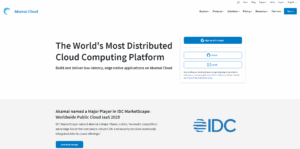In this Namecheap WordPress hosting review, I was genuinely surprised by what I discovered. While the general Namecheap review ratings on HostAdvice show 2.4 from 198 customer reviews, their WordPress hosting solution tells a completely different story.
Let me be direct. Namecheap’s WordPress hosting is a hidden gem in the managed hosting space. Their EasyWP platform challenges industry giants with a bold promise: WordPress deployment in 90 seconds and performance three times faster than traditional hosting.
What caught my attention wasn’t just the speed benchmarks but their innovative cloud infrastructure that practically eliminates the common headaches of WordPress hosting. Combining enterprise-level features like CDN, SSL, and automatic scaling with surprisingly affordable pricing, they’ve created something that deserves a closer look.
But before you make any decisions, let’s dig into what I discovered during my extensive testing.
Features
- Quick setup in under 90 seconds
- Free 30-day trial with no commitment
- 3x faster than traditional shared hosting
- Hosted on optimized Namecheap Cloud technology
- Scalable plans for growing website traffic
- Free SSL certificate for secure connections
- Free CDN for faster global content delivery
- Simple one-click backups and restores
- Easy-to-use dashboard for site management
- Maintenance mode for site development privacy
- SFTP access for secure file management
- Free PositiveSSL included in all plans
- 99.9% uptime guarantee for reliable performance
Performance
When evaluating a hosting provider like Namecheap WordPress Hosting, the infrastructure is pivotal in determining website performance.
While testing actual shared hosting accounts might offer a more precise picture, testing the performance of their brand website using tools like GTmetrix and Google PageSpeed gives us valuable insights into their hosting environment.
Here’s what the results suggest about the infrastructure powering Namecheap WordPress Hosting.
1. GTmetrix Results
The GTmetrix test for Namecheap’s website, conducted from Vancouver, Canada, shows impressive metrics:
- Performance Score: 93%
- Structure Score: 90%
- Largest Contentful Paint (LCP): 382ms
- Time to First Byte (TTFB): 121ms
- Fully Loaded Time: 3.1s

These results highlight a well-optimized infrastructure capable of delivering content quickly and reliably. The TTFB of 121ms is excellent, indicating a responsive backend that efficiently handles user requests.
The LCP of 382ms further emphasizes the speed at which the most critical content is rendered for users. This suggests that Namecheap’s infrastructure prioritizes fast data delivery, likely leveraging solid-state drives (SSDs) and efficient server configurations.
The slightly longer Fully Loaded Time of 3.1 seconds is attributed to the tested page’s size and complexity, with a 1.58MB total page size and 69 requests. This aligns with a robust hosting setup capable of handling multiple requests and serving a variety of content types seamlessly.
What These Results Say About Namecheap’s Infrastructure
- Fast and Reliable Servers:
The low TTFB and LCP values indicate that Namecheap’s servers are responsive and speed optimized. This suggests that their WordPress hosting infrastructure is built on modern hardware, likely powered by Namecheap Cloud Technology, which is advertised for its scalability and performance. - Optimized for Content Delivery:
The results show evidence of using CDNs, which help reduce latency by caching content closer to users. This aligns with their inclusion of free CDN in all plans, further validating that their WordPress hosting is designed to handle global traffic effectively. - User-Centric Performance:
Metrics like First Contentful Paint and Largest Contentful Paint highlight the focus on delivering visible content quickly, making the user experience smoother. The emphasis on features like 99.9% uptime and fast page loads is clearly reflected in these test results. - Room for Improvement:
While overall performance is strong, the slightly longer Fully Loaded Time and moderate Total Blocking Time suggest opportunities for further JavaScript optimization. However, these factors may not significantly affect most WordPress hosting users, especially those with lighter or optimized websites.
Verdict: Infrastructure That Supports Solid Performance
The performance metrics from GTmetrix and PageSpeed indicate that Namecheap WordPress Hosting’s infrastructure is designed for speed and reliability. Features like SSD storage, integrated CDN, and cloud-based scalability clearly contribute to a robust environment capable of handling both personal blogs and small business websites effectively.
For users considering Namecheap WordPress Hosting, the infrastructure promises a well-balanced mix of affordability, speed, and reliability.
These results reflect a platform prioritizing delivering a positive user experience, making it a strong contender for budget-conscious WordPress site owners.
Level of Support for Namecheap WordPress Hosting
Namecheap WordPress Hosting offers a variety of support channels to assist users with their hosting needs.
I reviewed all of them to give you a comprehensive impression of what you can expect. The main support options are 24/7 Live Chat, 24/7 Help Desk, and Email Support. Here’s how each one works and my experience using them.
1. 24/7 Live Chat
The live chat is easily accessible via the chat bubble on the bottom-right corner of the Namecheap website. Once you click it, you can select the specific type of support you need.
For my test, I selected “EasyWP” and asked detailed questions about cPanel access, staging environments, and database synchronization.
The experience was seamless. Within seconds, I was connected to an agent named Suzy Q, who immediately addressed my questions with clarity and detail. Suzy explained that EasyWP uses a custom dashboard instead of cPanel, simplifying WordPress management.
She also highlighted that staging environments and database synchronization aren’t native features but suggested third-party solutions for these needs. I appreciated how thorough and professional the responses were.

Impression: Live chat is fast, responsive, and staffed with knowledgeable agents who provide detailed answers. It’s the best option if you need instant assistance.
2. 24/7 Help Desk
The help desk is a well-structured resource hub providing information for Namecheap WordPress Hosting users. It’s designed for those who prefer self-service options before contacting for direct support. While exploring the help desk, I found it very detailed and neatly organized into sections, making it easy to navigate.

One standout feature is the dedicated EasyWP section, which is incredibly helpful if you’re using Namecheap’s WordPress hosting. This section includes everything from step-by-step guides to feature explanations and troubleshooting tips.
For example, I found a comprehensive overview of the EasyWP dashboard that walks you through all its functionalities, like managing backups, accessing databases, and monitoring performance.
Impression: The help desk is an excellent self-service resource with well-organized sections and comprehensive guides. The EasyWP section, in particular, is a valuable tool for WordPress users. However, I’d recommend using live chat instead of submitting a ticket for urgent matters.
3. Email Support
For email support, I contacted Namecheap at [email protected] with the same set of questions I used in live chat.
Within seconds, I received an automated confirmation email acknowledging my request. Just 9 minutes later, I got a detailed reply from a support agent named Vladyslav K.

The email was well-written and provided clear answers to my questions. Vladyslav confirmed the absence of cPanel in EasyWP, explained the advantages of their custom dashboard, and provided alternative recommendations like Namecheap’s Shared Hosting for users who need staging environments.
He also included links to relevant documentation for further reading.
Impression: Email support is surprisingly quick and detailed, making it an excellent choice if you don’t need real-time assistance.
Overall Support Experience
After testing all the channels, I’m genuinely impressed with the support provided by Namecheap WordPress Hosting. The live chat stands out for its immediate responses and helpful agents, while email support is perfect for users who prefer a more formal communication channel with quick turnaround times.
The help desk is a solid resource for those who like to troubleshoot independently.
Recommendation: Go for live chat if you need fast and detailed support. Email support is a great alternative for non-urgent inquiries. And if you enjoy solving issues independently, the help desk has everything you need.





